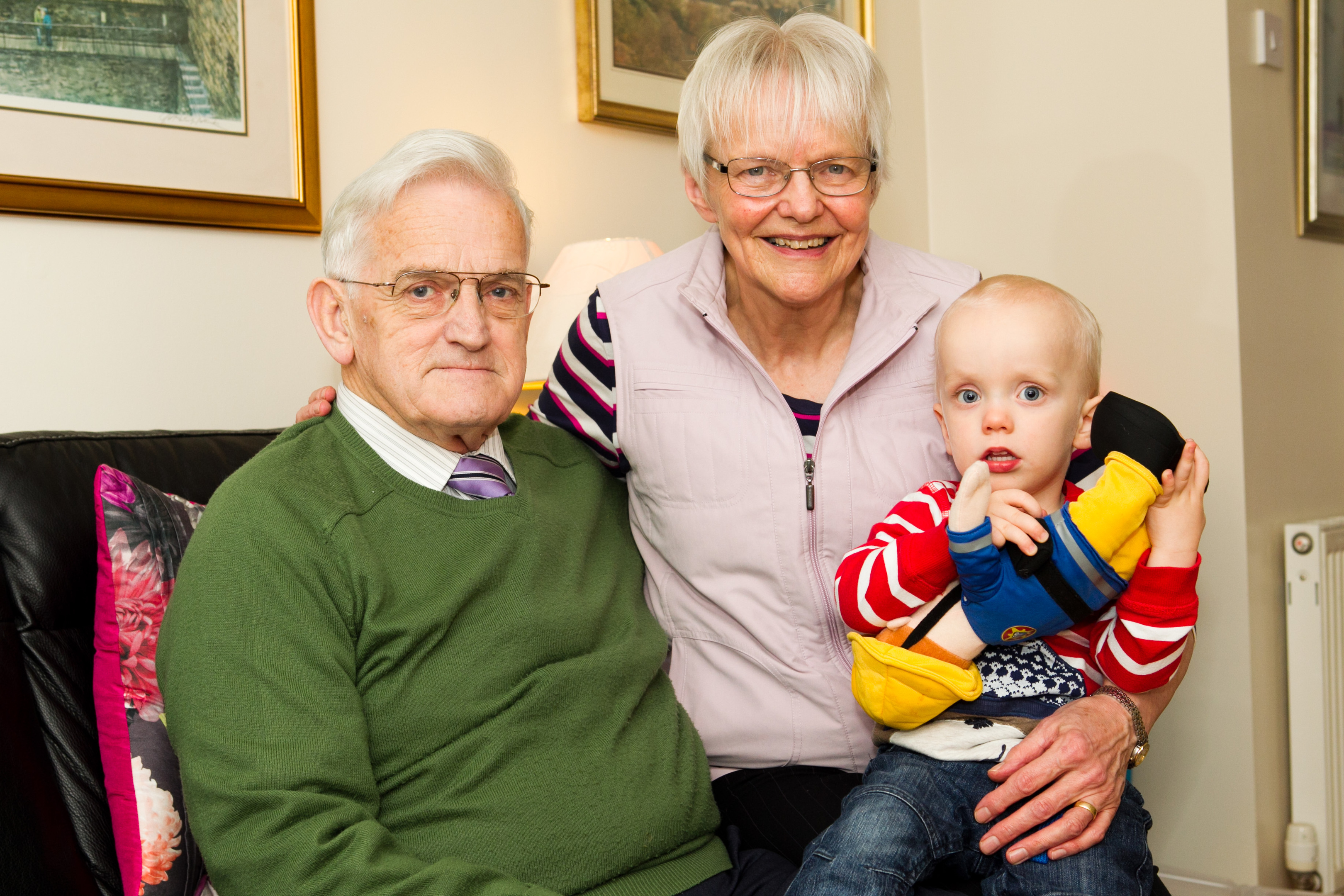
That’s where dementia advisors step in. Established five years ago, the advisors have helped tens of thousands of people in Scotland.
Alzheimer Scotland has 33 specialists.
We spoke to a family and their advisor about how the scheme can help people through tough times.
AS a minister, Douglas Ralph was a well-known, outgoing member of the community.
But when he was diagnosed with Alzheimer’s two years ago his character changed.
Since making contact with a dementia advisor, Douglas and wife Nancy are busier than ever, with a packed schedule that sees them out and about and mixing with other families living with dementia.
Nancy, from Paisley, admits it was hard going to begin with.
“Working in churches you tend to work with nice people, so a lot of things were being covered up,” said Nancy, who has three kids and three grandchildren with Douglas.
“But I saw he was struggling to do things and the way he reacted to them.
“When he was doing weddings he would get the forms mixed up.
“He will sometimes allude to an issue with his memory but we were at the consultant last week and Douglas told him categorically there was nothing wrong.
“He believes he’s still the minister, still sings in the choir and still drives.
“That makes it more difficult in a way.
“If someone was to ask him to take on a wedding or funeral, he’d say he could, and then forget five minutes later.
“We sold his car, but he still thinks he’s driving and will often say he will pick me up.”
Retired nurse Nancy had worked in general practice for two decades, so she’d encountered people with dementia. Douglas’ mum also had Alzheimer’s.
But nothing prepared her for seeing her husband with the condition.
“I was a bit lost at first,” she admitted. “Everyone’s problems are different, but it does help to talk about it openly.”
She found the ideal person just after Douglas was diagnosed in 2013.
“An advisor, Iain Houston, came out to speak to us. He was very good in picking up on Douglas’s interests,” Nancy said.
“When he heard about the choir Douglas used to sing in, he put us in touch with a singing memories group in town, which is great fun, and he also attends Football Memories.”
Douglas laughed: “I really enjoy that. I’m the only Hibs fan among the Rangers supporters and we have a good laugh winding each other up!”
Nancy continued: “We go to lots of different support groups.
“We’ve formed friendships where we meet up outside of the groups.
“A large part of our lives seems to revolve around these activities now.
“Things have definitely improved since meeting Iain.
“It really has made a huge difference and I think the dementia advisors are absolutely brilliant.”
Douglas’s advisor, Iain, has been in the job for more than three years.
“It’s a really varied role,” he said.
“Some people want to know everything about dementia, others don’t.
“It can be scary, so just knowing someone is there, just a phone call away, gives them a lifeline to discuss things.
“We give information and advice – it might be people worried about money or just recently diagnosed, and we talk them through social work, occupational therapy and power of attorney.
“Maybe we’ll hear from the family again in a week or a month, but it might be a year or never again once they have the information they require.
“People like Nancy and Douglas, we have more regular contact with.
“I usually see them every week or two and you do develop close bonds.”
He added: “Just because you have dementia doesn’t mean you can’t still go to the bowling club or shopping or to that voluntary job you do.”
Iain hopes Alzheimer Scotland can add to their number of advisors and Nancy agrees.
“They’re across the country and have access to all types of information, so people really should use them,” she added.
“It’s been wonderful having this kind of support and we’ve made genuine friends with other couples.
“To be able to talk to people and share the load is great.
“I can’t imagine doing this alone.”
If you are worried about dementia or want to find out how to get support, call Alzheimer Scotland’s 24-hour Freephone Dementia Helpline on 0808 808 3000 or visit alzscot.org

Enjoy the convenience of having The Sunday Post delivered as a digital ePaper straight to your smartphone, tablet or computer.
Subscribe for only £5.49 a month and enjoy all the benefits of the printed paper as a digital replica.
Subscribe